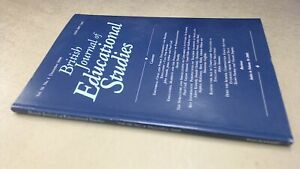Posted on by Aidan Thompson

Despite the vital part played by teachers in education and schooling, the role, work and status of teachers, including their preparation and continuing professional development, remain in a condition of paradox. On the one hand, teachers are one of the most – if not the most – significant factors that impacts on children and young people’s educational experiences, attainment and outcomes. The vitality of positive relationships between students and their teachers is now a ubiquitous claim. For many, teachers are best viewed as autonomous (or at least semi-autonomous) professionals who require and exhibit technical knowledge and subject knowledge, but who also – and crucially – act ethically, operate in loco parentis and use their professional judgement and wisdom for the good of those in their care. This understanding of the teacher requires teachers to have a positive sense of their profession and to think deeply about what education is for, what constitutes a good education and, indeed, the place of education in what it means to live a good life.
Yet, on the other hand, teachers, teaching and teacher education exist in difficult times. A succession of government policies and agendas over at least the last 45 years within the United Kingdom (particularly, but not only, in England) have increasingly viewed teachers as civil servants and as deliverers of an at times narrowed curriculum. Teaching itself has often been constituted as a technical, de-contextualised and prescriptive activity. An associated trend that has continued largely unabated over this period has witnessed teacher education being increasingly taken out of universities and colleges of higher education in favour of more practically focused time in schools. In England, while there has been a notable change in tone and approach since the election of the Labour government in July 2024 (two key examples are the removal of one-word judgements of schools subject to OfSTED inspections and agreement with the independent pay review panel to award to give teachers and school leaders an above inflation 5.5% pay increase, and increase that is promised to be fully funded), it does not look likely at the time of writing that the major changes in teacher education and development policy will be forthcoming. A further disconcerting trend comprises the issues revolving around teacher recruitment and retention, including of school leaders, which in some areas of the United Kingdom are in crisis.
This special issue of the British Journal of Educational Studies, which is based on 2023 colloquium of the Society for Educational Studies held at Oriel College, Oxford, offers considered examinations of teachers, teaching and teacher education today.
Read the full editorial by Professors Andrew Peterson and Hazel Bryan here.
Access Volume 72, Issue 5 of the British Journal of Educational Studies, a special issue on Teachers, Teaching and Teacher Education: Trajectories, Threats and Transformations here.
Register for 2025 membership for the Society for Educational Studies and receive free access and hard copies of the British Journal of Educational Studies and free attendance to the 2025 SES Colloquium for £30 [£20 students]. Join here.
No replies to this post yet